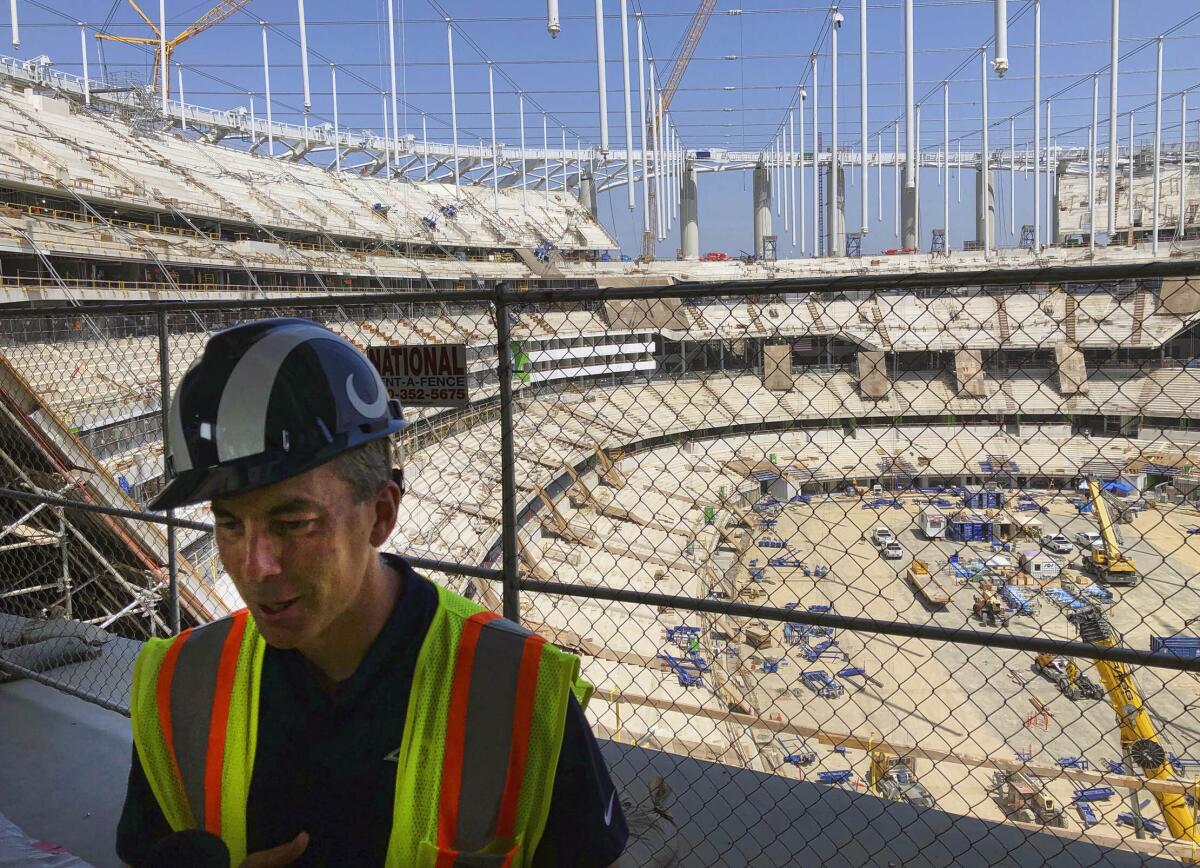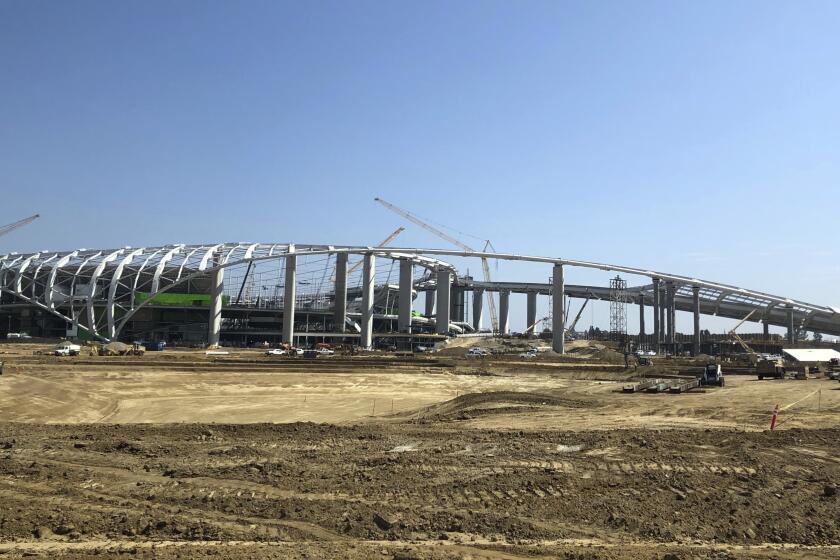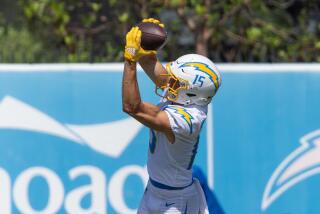Column: Chargers aren’t the only NFL team that rents

The same tweets and comments come rolling in like clockwork every time a picture, video or story is posted calling the Los Angeles Stadium at Hollywood Park the future home of the Rams and Chargers.
Variations of “it’s the home of the Rams; the Chargers are just renters” come flooding in from Rams fans and former Chargers fans in San Diego.
It’s understandable. Rams fans don’t want their team to share the stadium and former Chargers fans in San Diego will never understand why the team would leave their home of 56 years to be an afterthought in the crowded Los Angeles sports landscape.
The problem with calling the Chargers renters and needling them with chants of “pay your rent” is that they aren’t alone. There are only four teams in the NFL that own and operate the stadiums they play in.
When the Chargers called San Diego home, they had a lease agreement to play at Qualcomm Stadium, which is owned and operated by the city of San Diego. The Chargers were never the stadium’s lone tenants, sharing it at various times with San Diego State and the San Diego Padres.
Some of the most iconic stadiums in the league aren’t owned by the teams that play there. The Dallas Cowboys play at AT&T Stadium, which is nicknamed “Jerry World” after Cowboys owner Jerry Jones. However, the stadium is owned by the city of Arlington and the Cowboys pay $2 million per season in rent. The Chicago Bears pay $6.3 million annually to play at Soldier Field, which is owned by the Chicago Park District. The Green Bay Packers pay almost $1 million annually to play at Lambeau Field, which is owned by the city of Green Bay and the Brown County Pro Football Stadium District.
Every team in the NFL, except for the Miami Dolphins, New England Patriots, Washington Redskins and Carolina Panthers, is technically a renter when it comes to its home stadium.
When the Los Angeles Stadium at Hollywood Park opens next year, it will be owned by Stadco LA LLC, a third party controlled by Rams owner Stan Kroenke. Chargers ownership holds an interest in the company as well.
While much has been made of the Chargers paying $1 per year to rent the stadium, the Rams will be paying the same amount.
While Kroenke controls Stadco LA LLC, the Chargers are more partners than tenants in the stadium. Each team is paying $200 million from their NFL G4 loan toward the stadium’s construction. Each team will keep its local revenue from the stadium, which includes money from tickets, parking, concessions and other game-day-related sponsorship and advertising deals. Each team will get an 18.75% cut from naming rights deals and jointly sold suites and personal seat licenses. And the stadium will have equal-sized home locker rooms for each of the teams.
The Los Angeles Stadium at Hollywood Park doesn’t have a naming rights deal yet but its plaza, formerly known as Champions Plaza, will be unveiled as American Airlines Plaza on Tuesday.
The Rams and Chargers were both present Tuesday for the stadium’s first naming rights deal, as the plaza in between the stadium and performance center was announced as American Airlines Plaza. As part of the deal, American Airlines became the official airline of both the Rams and Chargers and airline officials said their company would have prominent branding during Rams and Chargers game days. Expect similar equal partnerships later this year when naming rights deals are announced for the 70,000-seat stadium and the 6,000-seat performance center.
“The partners that come into this building will share an official designation with both teams, and I think that’s right,” Rams chief operating officer Kevin Demoff said. “We’re partners in this stadium and we’re partners in making the NFL as strong as possible in Los Angeles.
“We want to make L.A. a true NFL city with the L.A. Rams on the NFC side and the L.A. Chargers on the AFC side, and hopefully in 2022 we’ll be the first teams to host and play in the same Super Bowl.”
When Fred Maas, the Chargers’ chief of staff, shows off renderings of the stadium, there’s a massive Chargers logo on the canopy of the stadium, Chargers logos on the 70,000-square-foot Oculus display that will hang from the roof, Chargers logos on the field and on the televisions in suites and concourses. It looks like the home of the Chargers. There’s no sign of the Rams, who have similar renderings of their home games.
“New York having one stadium for the Jets and Giants was a great experiment and opportunity for us to learn,” Maas said. “… There will be no doubt that this will be the home of the Chargers when we have a home game.”
Cory Littleton is playing on a one-year contract that will pay him about $3.1 million, meaning he needs to earn a new deal with the Rams.
The divide will come on days the NFL isn’t playing there.
Kroenke will get all non-NFL revenues and the Chargers will not have a role in the mixed-use development planned on the 298-acre site.
Kroenke could make everything outside the stadium Rams-centric and ignore the Chargers, but the plan is to make the development a neutral destination.
“There’s a tremendous amount of collaboration that’s going into the stadium, the naming rights and the founding partners,” said A.G. Spanos, Chargers president of business operations, . “Those partnerships are done in collaboration with both teams and we’re really working together to make this the best stadium in the NFL.”
More to Read
Go beyond the scoreboard
Get the latest on L.A.'s teams in the daily Sports Report newsletter.
You may occasionally receive promotional content from the Los Angeles Times.













